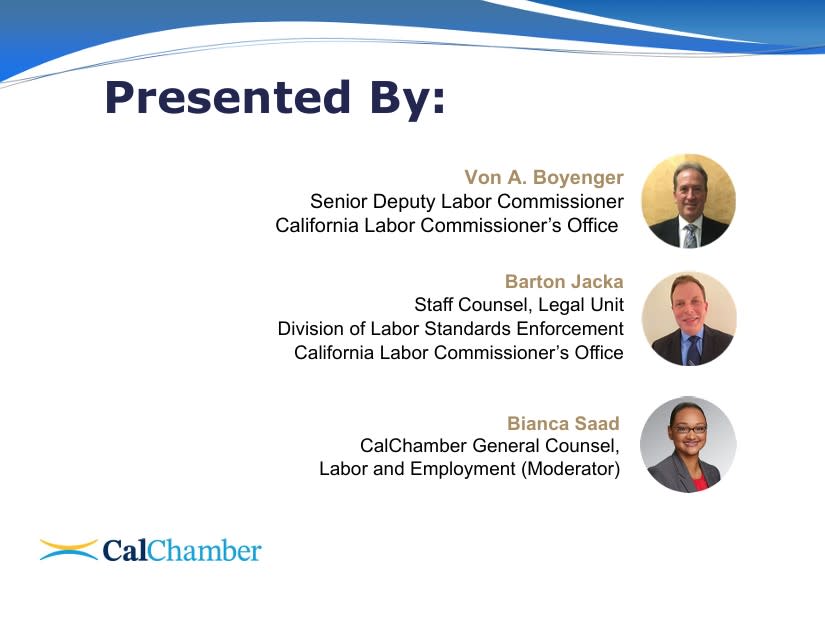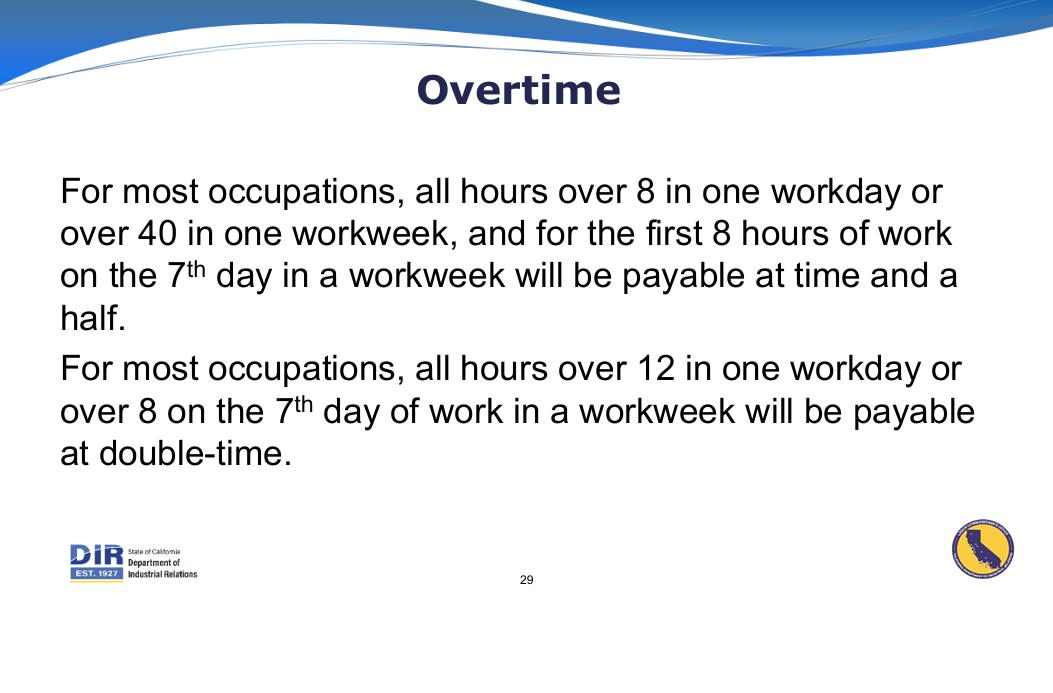
Avoiding Wage and Hour Pitfalls: What Every California Employer Should Know in 2025
CalChamber Webinar for Business Owners
At the Temecula Valley Chamber of Commerce, we understand that business owners are deeply focused on growing their enterprises, serving their customers, and supporting their teams. In the midst of these priorities, staying current with evolving employment laws, particularly wage and hour regulations, can be challenging. However, compliance in these areas is essential to safeguarding your business and the treatment of employees.
On July 11, 2025, the California Chamber of Commerce, in collaboration with the California Labor Commissioner’s Office (LCO), hosted an essential webinar titled Most Common Wage Violations 2025. This expert-led session provided invaluable insights to help California employers—particularly small businesses—strengthen their compliance with the state’s complex labor laws and avoid costly mistakes.
The program was part of the Labor Commissioner’s Business Engagement Program (BEP), an educational outreach initiative designed to build public awareness, improve compliance, and reduce wage claims. Employers across all industries were encouraged to attend and learn from top state officials on how to create fair, legally sound workplaces.
Presenters and Panelists
The webinar was moderated by Bianca Saad, General Counsel for Labor and Employment at CalChamber. Expert insights were provided by:
insights were provided by:
- Von A. Boyenger, Senior Deputy Labor Commissioner
- Barton Jacka, Staff Counsel, Legal Unit, California Labor Commissioner’s Office
Both presenters are highly experienced in California labor enforcement and regularly work with employers and employees in the wage claims process.
Key Themes and Takeaways
1. Mission and Approach of the Labor Commissioner’s Office
The LCO’s mission is “to ensure a just day's pay in every workplace in the state and to promote economic justice through robust enforcement of labor laws.” The office seeks to protect workers while also educating employers and leveling the playing field for law-abiding businesses.
2. Trauma-Informed Public Service
The LCO emphasizes a trauma-informed approach when interacting with the public—recognizing that individuals involved in wage disputes may be experiencing distress. Empathy, professionalism, and clear communication are foundational to their process.
3. Top Wage and Hour Violations
The webinar identified several recurring issues that employers must address:
- Minimum Wage Compliance: All employees—regardless of pay structure—must receive at least the
 applicable minimum wage for every hour worked. In 2025, the statewide minimum wage is $16.50 per hour, but local ordinances may require higher rates.
applicable minimum wage for every hour worked. In 2025, the statewide minimum wage is $16.50 per hour, but local ordinances may require higher rates. - Wage Statement Errors: Employers must provide detailed, accurate wage statements that meet the requirements of Labor Code Sections 226 and 226.2. Failure to comply may result in substantial penalties.
- Overtime and Blended Wage Issues: Non-exempt employees must be paid time-and-a-half for hours over 8 in a day or 40 in a week, and double time under certain conditions. Blended wages, pay reductions, or varying rates must be clearly documented and communicated in advance.
- Meal and Rest Period Violations: Missed or improperly documented meal/rest breaks are among the most frequent sources of wage claims.
- Reporting Time Pay: Sending an employee home early may still require a minimum of 2–4 hours of pay, depending on their scheduled shift.
- Independent Contractor Misclassification: The “ABC Test” remains a critical standard when classifying workers, especially in gig or freelance roles. Misclassification exposes employers to back wages, penalties, and other liabilities.
4. If a Wage Claim Is Filed Against You
The LCO outlined the typical wage claim process:
- A Notice of Claim Filed is sent to the employer.
- Retaliation against employees is strictly prohibited.
- Employers are encouraged to resolve the issue informally or attend a Settlement Conference.
- If unresolved, the matter proceeds to an evidentiary hearing where both parties may present evidence, call witnesses, and retain legal counsel.
- If the employer loses, they may appeal but must post a bond and comply with court procedures.
5. Importance of Recordkeeping
Employers are legally obligated to maintain accurate time and payroll records. Employees are not required to keep such records themselves, but the DLSE may request any available documentation from either party to clarify disputes. Lack of proper documentation can severely impair an employer’s defense.
6. Recent Wage Law Updates
Key legislative and policy changes shared during the webinar included:
- Fast Food Workers: As of April 1, 2024, the minimum wage for fast food restaurant employees rose to $20.00/hour under AB 1228.
- Healthcare Workers: Beginning October 16, 2024, qualifying employees in healthcare settings must earn between $18.00 and $24.00/hour, depending on the facility type.
- Agricultural Overtime: As of January 1, 2025, all agricultural employees are entitled to overtime pay after 8 hours/day or 40 hours/week, regardless of employer size.
Important Links and Information
- Webinar Slides - Click Here
- Webinar Recording will be available - Here
- Link to Labor Commissioner's Office website
- Link to California Equal Pay Act
- Link to Workplace Postings
Please note: The content provided is intended for general information only and does not constitute legal advice. Employers are encouraged to consult legal counsel for guidance on specific situations.
This presentation was a timely and essential resource for any employer seeking to stay ahead of legal risks and create equitable workplaces. By understanding the rules, improving documentation, and resolving issues proactively, businesses can significantly reduce their exposure while promoting compliance and fairness.
If your organization would like help connecting with legal resources or local workforce experts, the Temecula Valley Chamber of Commerce is here to assist.
